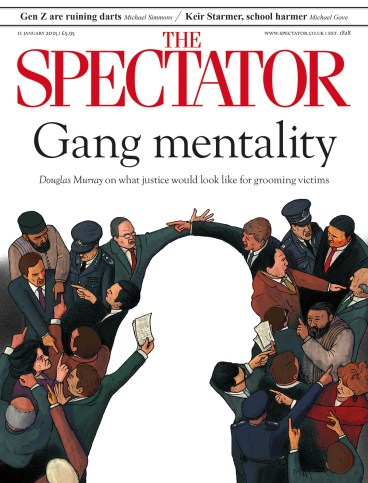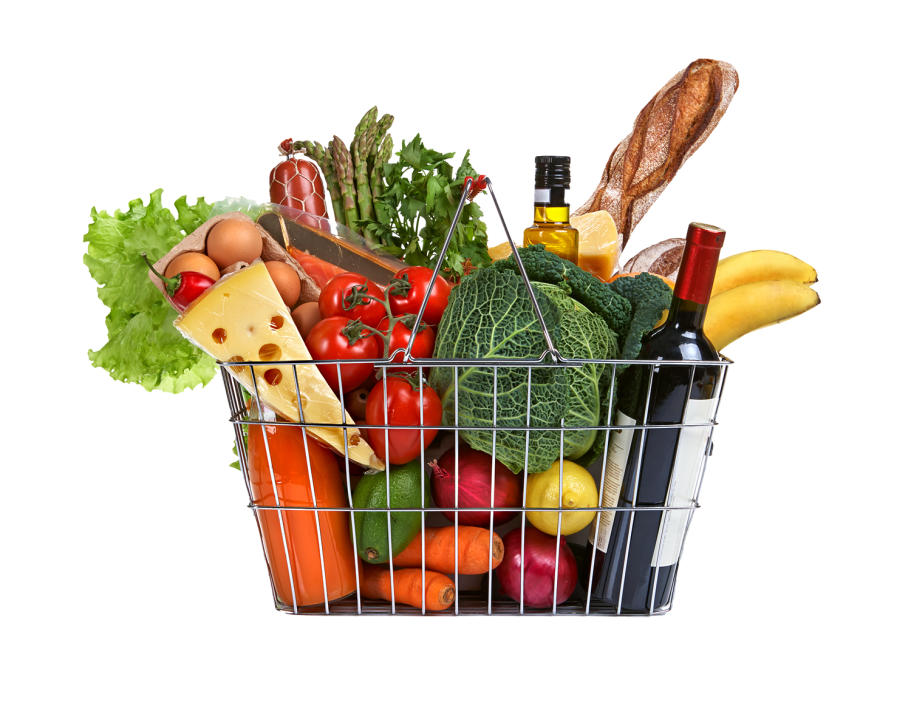
Things used to cost approximately what you expected them to cost. Now, the price of almost every item is eye-wateringly, gasp-inducingly more than you expect it to be. The nation is reeling from a month of crippling generosity.
The new cashless existence anaesthetised us a little from the financial violence as we went through Advent visiting actual shops, discovering that almost no item cost less than £50, and trying not to feel physical pain or to look at the numbers on the screen as we heard the transactional beep. Now, in January’s glare, bank statements are regurgitating our crazy Decembers. Mine started with £33 for 20 first-class stamps and went on to include multiple shocks, such as £60 for three bars of Floris soap, £117 for a small bottle of Jo Malone scent and £70 for the ordered-in-advance turkey (size: small).
Is anything still cheap? ‘We can live happily on mushrooms,’ says my husband, coming home from Tesco with two £1 packs of closed-cup white ones for the evening pasta dish made with dried penne, frozen peas, leftover bacon and cream. Those are, in fact, the ingredients for frugal luxury.
This is the month in which the dazed middle classes discover the parallel universe further down the high street, the no-frills, cashierless world of Lidl, where a box of mushrooms costs 89p, a mega-bucket of Greek yoghurt £1.65 and a packet of spaghetti 28p. Price-wise, it’s like travelling back to the 1980s. Hundreds of items cost well under £1, including chopped tomatoes for 39p. The labels are unsettlingly obscure – Naturis juice, Tower Gate biscuits, Baresa plum tomatoes, Fin Carré chocolate. You feel there must be something wrong with them, for them to be so cheap, but they taste fine.
A bag of ten packets of Snaktastic Wotsits-style crisps costs £1.25, which is astonishingly cheap, when you consider that a packet of crisps at Pret costs £2.10. In 1979, a packet of crisps cost 5p; now, a bag of Walkers salt and vinegar costs £1.10 in WHSmith. With this pattern of inflation continuing (and it sees no sign of abating), in 45 years’ time a packet of crisps will cost £24 – unless you go to Lidl.
Shops know how to play us. They turn us into addicts of their goods and then stealthily put the prices up, or keep the prices the same but hope you’ll cling on to the addiction after they’ve made the item smaller. A glaring example is the cynical change to the inside layout of a packet of Choco Leibniz biscuits. There used to be three piles of three. Now, the biscuits are presented in fallen dominoes-style, and you get just eight. And loo paper! How quickly those rolls go down to the cardboard, now the number of sheets has diminished from the original 280 to a pathetic 200.
We must play the shops in return. The market depends on the public saying: ‘Enough! I refuse to pay £2.90 for a packet of Honey and Salt Sensations.’
What else can you buy cheaply? Wine hasn’t gone up nearly as much as cigarettes have in the past 40 years. When I was at university in the 1980s, the cheapest bottle of wine (Valpolicella) for a bring-a-bottle party was £1.99 and a packet of cigarettes was £1. Now the cheapest bottle of wine (seen at Lidl) is £3.99 and a packet of cigarettes (not that I smoke any more) is an absurd £16.75.
Abroad is cheap – as long as you choose the right kind of abroad. My son recently went to visit an ancestral village in the far west of Ukraine. He spent £50 on the final day. Half of that, £25, went on the Stansted Express ticket home from the airport. The other £25 (all spent in Ukraine) covered ‘two good meals, coffee, one bus journey, one train journey, one Uber journey, four pints, a packet of cigarettes and the £5 flight home’.
Another son stayed at a hostel in Chiang Mai last year for 90p per night including breakfast (coffee and toast with no spread). ‘The door handles had fallen off but it didn’t matter.’ Hostel prices in London can still be astonishingly low: £9 a night in Willesden, £10 a night in Seven Sisters and just £11 a night near Hyde Park (very near where the real hotels charge a minimum of £160 per night in the off-season). But you have to share a room with a stranger, and some of these places stipulate that you can only stay at them if you’re aged between 18 and 48.
If you’re willing to get up early and can get to Stansted (not on the Express), carrying no more than a minute suitcase, you can fly to any Polish city or to Tirana, Rome or Milan for £15. And then live on Pot Noodles. If you’re more of a domestic traveller, you can take the night coach from London to Preston (or vice versa) for £16.50, or from London to Cardiff for £10.90. Only by such drastic measures will we recover from December’s madness and show the price-hikers that they can’t rely on us to play their game.








Comments